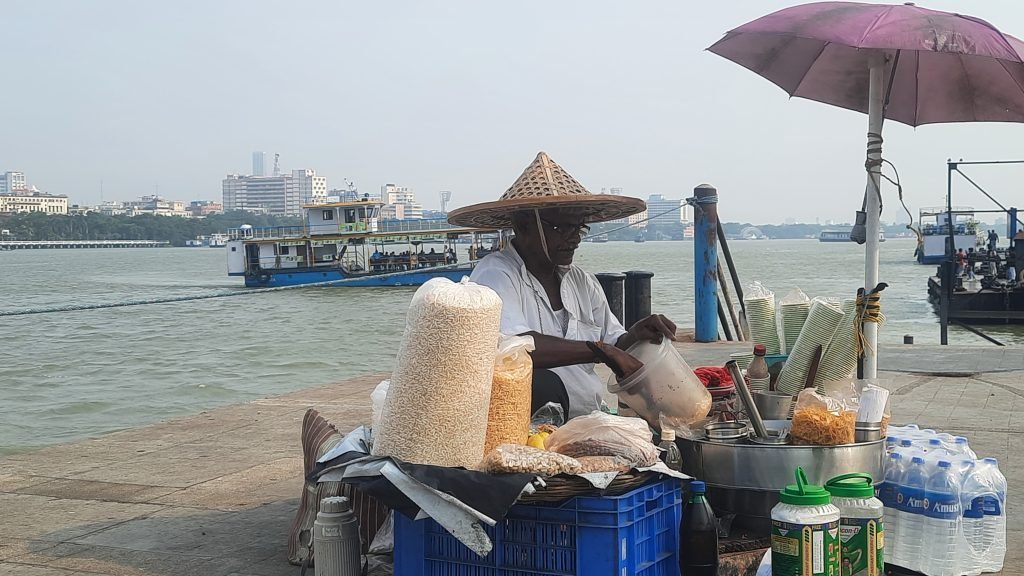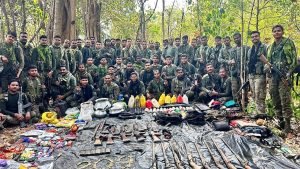The Jhalmuri Seller by the River

Dubela, Chhoyee Ghosh:
On a warm afternoon by the Hooghly River in Kolkata, a simple yet soulful scene unfolds. A humble man, wearing a wide bamboo hat, sits near the riverbank, preparing jhalmuri and “ghoti-gorom” — two of the most popular Bengali street snacks.
Around him are large bags of puffed rice, containers of chopped onions, chilies, spices, and a big steel bowl where he skillfully mixes everything together. He sits under a faded pink umbrella, providing him with shade from the sun. Behind him, ferries glide gently across the river, ferrying people from one side of the city to the other. The calm water and soft breeze create a peaceful atmosphere.
Life for vendors at the ferry ghats is full of hard work, uncertainty, and patience. These vendors often start their day very early, setting up small stalls near the riverbanks to serve commuters, tourists, and locals. Many of them sell simple snacks like jhalmuri, tea, biscuits, fruits, or bottled water. Their earnings depend on the crowd and the weather. Over time, they become familiar faces to regular passengers, becoming part of the city’s daily rhythm. Despite limited resources, they serve with a smile, keeping alive the charm and culture of Kolkata’s ferry ghats.
Next to his stall, plastic water bottles are neatly arranged, and green bottles of sauces stand ready. Disposable cups are stacked neatly, ready to serve water, Rasna, or Glucon-D to thirsty passersby in need of a quick refreshment.
This man, sitting quietly with his basket of puffed rice and spices, is a living symbol of the city’s everyday beauty. Sometimes, the most heart-touching stories aren’t found in books but by the riverside, in a “thonga” or paper envelope filled with jhalmuri.





